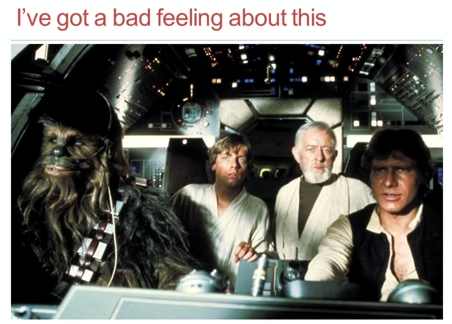| Turing's Curse - Is There Nothing New Under The Sun? |
| Written by Mike James | |||
| Saturday, 27 July 2013 | |||
|
The pace of technological change has never been faster, but perhaps it is not quite as fast as you might think. John Graham-Cumming's talk at OSCON presents evidence that it's all been done before. This is an interesting video that claims that most of the things that we think of as being new and breakthrough were invented a long time ago. All we have been doing is waiting for them to come down in price and improve their performance. It is a fun video because it starts you thinking to try and come up with a technology that is really, really new and doesn't have the slightest glimmer of being thought of 30 years ago. However the thesis isn't just that our new stuff is old but that there is a high water mark in our innovation - after which not a lot happened. The date for this high water mark is 1983, the year of Star Wars.
Watch the video and see if you are any more successful at offering suggestions for new ideas.
So what, you may ask?
But why "Turing's Curse"? The reason for the name relates to the halting problem. It is impossible to write a program that can decide if any arbitrary program will halt. This is taken as a comment on the difficulty of building debuggers and debugging in general. The argument is that the missing piece of the toolkit is the automatic debugger. This is where we have had nothing new and really need something new since the start of computing. Is 1983 the watershed? I'd say it very possibly was. The nature of our subject is that once you have grasped the idea of a general purpose computer, and the power of software, then a lot of things that were unthinkable before become completely obvious. Many of the technological innovations that litter the history up to 1983 are more about daring to think big than anything really innovative. It is the other reason that software patents are generally rubbish - it really is all so obvious, if only you think about it and think about it big enough.
Please submit a comment if you think you have something that wasn't thought of before 1983 More InformationOSCON 2013 Keynote: Turing's Curse Related ArticlesAda Lovelace, The First Programmer
To be informed about new articles on I Programmer, install the I Programmer Toolbar, subscribe to the RSS feed, follow us on, Twitter, Facebook, Google+ or Linkedin, or sign up for our weekly newsletter.
Comments
or email your comment to: comments@i-programmer.info
|
|||
| Last Updated ( Saturday, 27 July 2013 ) |


